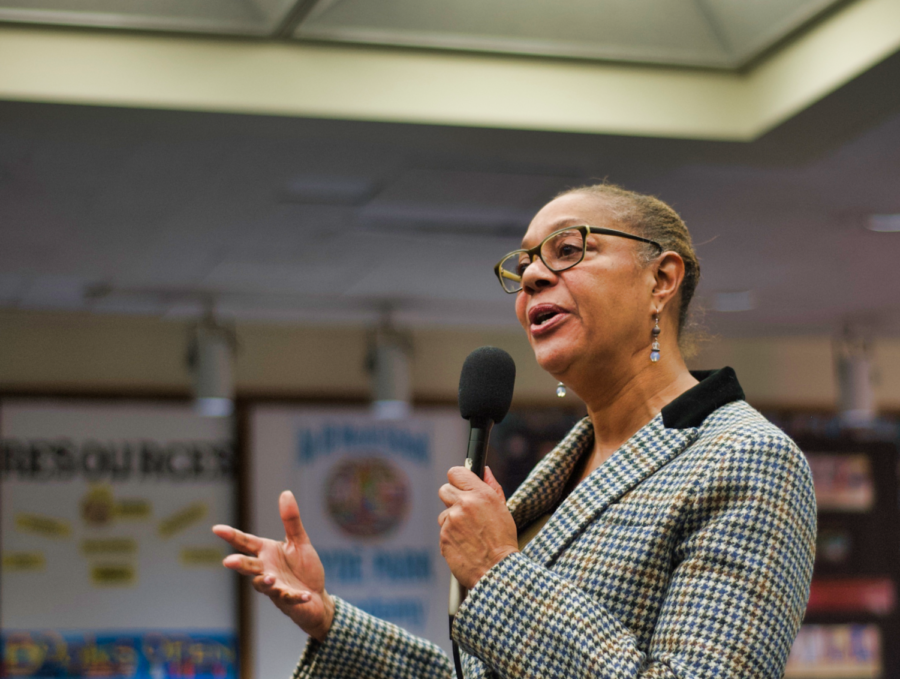In an interview with The Maroon, Fifth Ward Alderman Leslie Hairston discussed a December move by some members of the Chicago Aldermanic Black Caucus to delay the start of recreational marijuana sales in the city over concerns about the preponderance of white men granted dispensary licenses.
On January 1, recreational use of marijuana was legalized in Illinois, allowing consumers at least 21 years old to buy marijuana products from licensed dispensaries. Many of the state’s medical marijuana dispensaries received recreationallicenses set to begin January 1. In Chicago, legalization generated pushback from members of the Black Caucus, which consists of 20 of Chicago’s 50 aldermen, over the number of non-white citizens who have been incarcerated for marijuana-related offenses. The caucus also objected to the law’s failure to set aside recreational dispensary licenses for non-white operators.
Hairston told The Maroon that Black Caucus members had tried to force a delay because “When the Governor rolled out the laws they had put down in Springfield they had not allowed for any person of color to have a license.”
In a series of contentious City Council votes last month, the Black Caucus attempted to stall recreational marijuana sales for a period of six months to ensure that non-white owners would have a chance to receive dispensary licenses. The delay was defeated in a 29–19 vote on December 18. Aldermen who switched their votes said Governor J.B. Pritzker had given assurances that some dispensary licenses would be set aside for so-called “social equity applicants.”
In December, a spokesperson for the governor told the Chicago Sun-Times that Springfield had not decided to guarantee any dispensary licenses for social equity applicants.
“There will be a regulated process to determine the ultimate owners from the pool of all applicants, including social equity applicants,” the spokesperson said.
Hairston said that the Office of the Governor has not done enough to ensure that social equity applicants will be able to capitalize on legalization.
“This is spin. There is not a person of color or even a female that can operate right now. We still have to wait six months,” Hairston said. “There are several people that I have talked to and are interested in operating.”
Hairston said that those who receive licenses to operate recreational dispensaries later in the year will be at a disadvantage compared to those who were allowed to start sales on January 1.
“They’re going to have to play catch up because everyone that had a license on January 1st has a six months lease and they get to learn the mistakes and advantages. It’s unfair for something that you say is supposed to correct what was done before,” she said.
Hairston also said that the Black Caucus members’ issues with the rollout of legal marijuana sales went beyond the racial distribution of dispensary ownership to include the disproportionate historical effects of incarceration for marijuana possession.
“There was a lot of conversation about social equity for the black and brown people that were thrown in jail for recreational marijuana. They were being thrown into jail for recreational marijuana at disproportionate rates than what non-blacks were.”
While all the demands of some Chicago lawmakers havenot been addressed in Springfield, the state-level legalization package included proposals intended to undo some of the effects of the war on drugs. Pritzker pardoned more than 11,000 low-level marijuana-related convictions at the end of December. Beyond that opening salvo, more than 34,000 individuals convicted of larger marijuana offenses are eligible to petition for pardons, and about 572,000 marijuana arrest records that did not lead to a conviction will be expunged, according to AP News.









